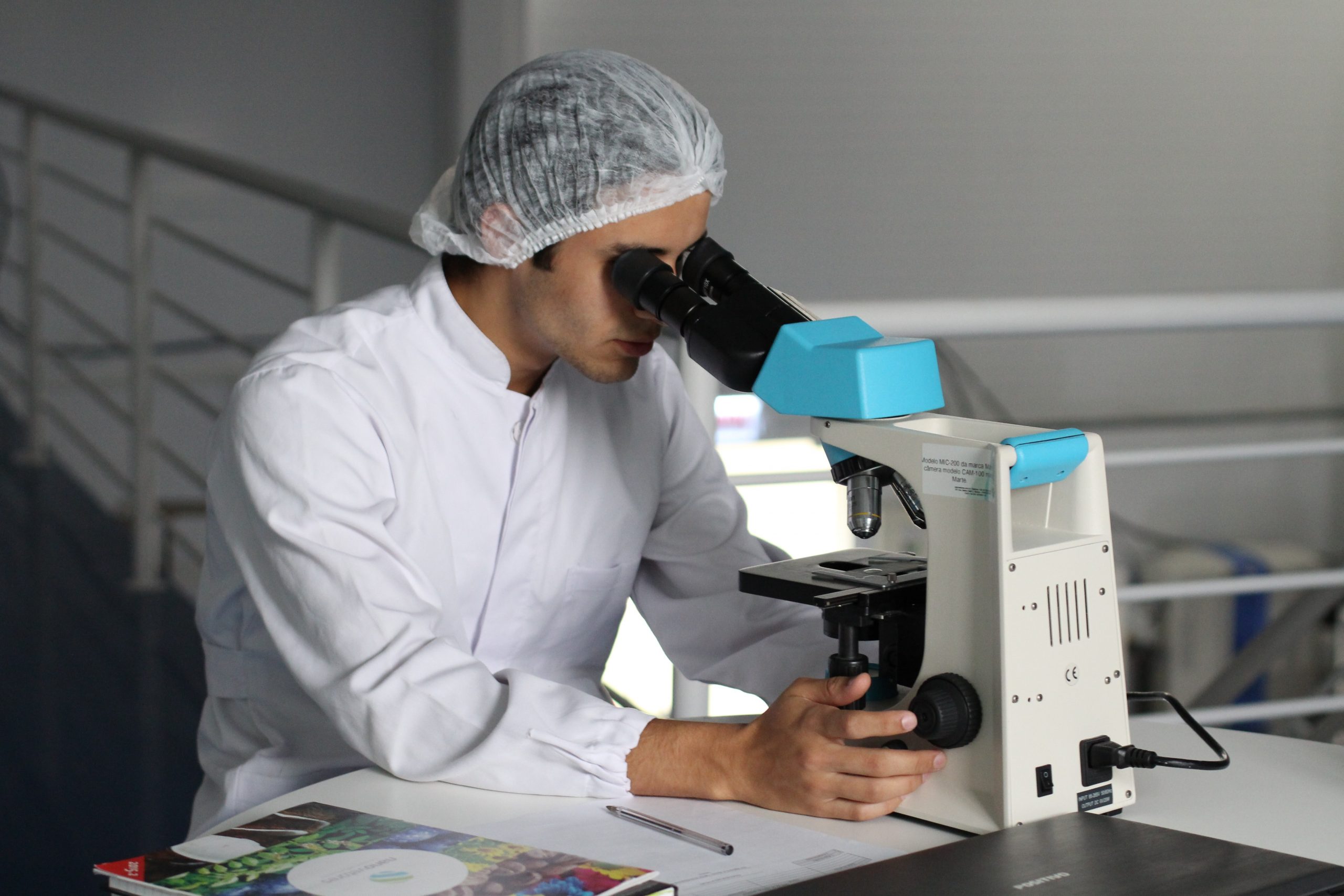Attention Deficit Disorder with/without Hyperactivity (ADHD) is a neurodevelopmental disorder. It combines 3 characteristics: inattention, hyperactivity, and impulsivity. The number of people who are affected is very difficult to estimate. Because ADHD is difficult to diagnose, but also because of the clichés and myths about it. Today, we propose to break the clichés by dissecting 10 ADHD myths and things not to say anymore.
But first, a little remindez
Before busting the ADHD myths, let’s quickly review what ADHD is. As mentioned in the introduction, it is a neurodevelopmental disorder. There are 3 types of ADHD: Dominant Overactive, Dominant Inattentive, and Combined. To sum up very simply, in a person with ADHD, the brain does not process his gestures and ideas in the same way as for a so-called neurotypical person. This implies that the behaviors or reactions can sometimes seem “exaggerated”, “inappropriate” or even “done on purpose”.
Admittedly, ADHD is not a catch-all excuse. But it seriously affects the lives of affected people in many ways. Something that those around the person, or society in general, may have trouble understanding. Thus, there are still many clichés, misconceptions, or myths about ADHD.
- We all have a bit of ADHD, right?
A phrase that we often hear after talking about our ADHD symptoms, our experiences. It is especially when we talk about concentration difficulties, problems focusing our attention on THE subject that this sentence comes up, but not only! Other experiences common to people with ADHD, when told, create this kind of reaction. But, if we analyze well, the frequency and the impact on life are much greater when you have ADHD!
Admittedly, we have all experienced this moment when we cannot concentrate on our homework when we preferred to browse social networks… But, in an ADHD person, the effect is not only more frequent but also more intense. If we had to explain simply, it is because the brain has defects in its production of dopamine. And it will take a lot more for him to get going and maintain focus on a task.
What to do instead?
Understand the person’s issues and how ADHD impacts them. Some of the symptoms of ADHD are found in neurotypical people. But, when you have ADHD, it’s much more intense. So, take the time to listen to how the person is feeling.
- It fades with age, you’ll see
It used to be thought that children got rid of ADHD as they grew up. Today, numerous studies, such as that of the American Academy of Pediatrics, have noted that ADHD very often persists in adolescence and throughout adult life. Although some people have no more ADHD symptoms or fewer symptoms, for the majority, an ADHD child will be an ADHD adult. It should also be noted that some adults who were children with ADHD can also “mask” this disorder and therefore no longer present the symptoms in public but remain impacted by it.
What to say instead?
As parents of children with ADHD, it’s best to develop workable solutions, not leave promises like “Maybe later things will be better.” You must help as much as possible.
- If you organized yourself, it would be better
Another classic among commonly heard phrases is the lack of organization! On the contrary, older people, try to organize themselves, just as the parents involved work to structure and organize the life of their child as well as possible! But even with good organization, the troubles persist. In addition, the “classic” resources to help with the organization do not necessarily work for ADHD therapist near me. There is no one-size-fits-all solution, but there are ideas that can serve as a basis for reflection.
What to say instead?
Visual aids can for example help the person. What solutions do you need? “What would you like to try to make it better? It is important to seek with him the solution that will suit him best. It will take time, but it will be more effective.
- You don’t make any effort
In the same idea, but more violent in turn, some people think that ADHD is an excuse to do nothing, to make no effort. Of course, ADHD cannot excuse everything, but appearances are deceptive. People living with this kind of disorder make efforts, do their best to complete their tasks, and organize their lives well, but it is not as easy as one thinks.
When you live with ADHD, you are just as aware as a neurotypical person of the importance of a task, even more so in some cases. But getting started on a said task isn’t as easy, and more importantly, it’s not consistently so easy. Where, sometimes, we will feel like we are growing wings and we will completely tidy up the room, sometimes the simple fact of starting is “too hard”. Especially because the brain is in “all or nothing” mode. We don’t say to ourselves “I’m going to put away the bed, then the wardrobe, then vacuum”, but we think “I have to do everything, in one go, otherwise I won’t succeed”. And it is this all or nothing that paralyzes our actions.
What to say instead?
“Do you need help getting started?” “I can assist you to get started if you need”, it is often this outstretched hand that leads to success. Many ADHD people testify that by being guided positively, when someone supports them, the tasks are done much better! So, help the person by guiding them, by motivating them without putting them down. To help him tidy up his room, for example, offer to do this together at first, and once he’s inside, let him do it!
- You concentrate well on a subject, why not on this?
One of the “powers” of ADHD, as some people like to call it, is hyperfocus – or hyperfocus. Common with autism (called special interest), hyper-focusing is being so absorbed in a task or topic that you ignore all cues around you. You can spend 4 hours drawing without realizing that you haven’t drunk any water in the meantime, for example. Focusing on a subject that is in our hyperfocus is much easier, the brain delivers more than enough dopamine to start and finish the task. But it’s not so simple for another or, even worse, boring task. And when you live with ADHD, the repercussions of this hyperfocus are sometimes great.
What to do instead?
Hyperfocus is important for a person with ADHD, it’s what makes them happy. A passion, an activity, as for a neurotypical person, it is important to grow. Do not deprive him completely but help him pay attention to other tasks. To help him leave this hyper-focus and move on to another task, it is necessary to take time to discuss with him, to propose a break of 5 minutes without anything, and to embark on the new task. The transition will be easier, and you will feel much better. Besides, also think about talking with the person about this hyperfocus. Not only do you value her, you recognize her passions, but you also allow her to speak, only positive things!
- You were not well educated
If you are a parent of a child with an intellectual disability, you may have heard such phrases before. Letting think that it’s your fault if the child is like that that he has not been educated well. You know that’s wrong, that you’re doing what you can to help her and raise her well, but her ADHD doesn’t allow her to deal with emotions, work, and everything like everyone else.
Well, yes, ADHD will not excuse certain behavior, of course. But to think that the slightest “abnormal” behavior of a child must be regulated by an education… It is destructive for the child.
What to do instead?
You must take the time to discuss with the person, to listen to him. But above all, know that not all behaviors can be controlled. If you are a parent and you are told this sentence, tell yourself that the person has never had to manage your child and cannot necessarily do better than you!
- It’s because of the diet
An argument often heard with the reproaches on the education, is the food. That doesn’t mean you have to relaunch the all-you-can-eat candy buffet or that you can let him eat anyhow, no. Yes, there are foods that it is better to limit, but they are not to be banned (except for other transformation health concerns)! But if eating better magically solved ADHD or other neurodevelopmental disorders, we would have known it a long time ago!
As with everyone else, “simple” food is often the one to which we go most easily. But, in a neurotypical person, this temptation is easier to fight. Because of ADHD, we sometimes tend to be impulsive, even when it comes to food. So yes, you must be careful what you eat, but as for a neurotypical person!
What to do instead?
ADHD is known to cause some problems in managing their diet, so help the person manage their impulsiveness by “distracting” them, such as asking them what they did today. Generally, we end up forgetting this food impulsiveness!
Otherwise, in the opposite case, offer reminder and alarm tools to remind you to eat well! Post-it notes, Time Timers, in short, support that helps him refocus on himself!
- Why are you reacting like this?
When you have ADHD, emotions are often also in shambles. The brain cannot control them all at once. Generally, we do not want to react like that. We don’t want to get upset, but overreactions and emotional management are complex. We can also tend to interrupt people, because we want to say something, and find it difficult to wait our turn.
On the other hand, one of the little-known and recently discovered components of ADHD is the sensitivity to rejection. People with ADHD tend to over-interpret other people’s reactions, and think they’ve done something wrong, that they’re going to be reprimanded… When, quite often, that’s not the case. Empathy is also more present in people with ADHD. We must help the person to better understand the reactions, by being clearer in our exchanges, to limit such over-interpretations.
What to do instead?
You need to realize that an ADHD child will not act like a neurotypical child. Be understanding of reactions that may seem “abnormal” to you (if they are soundly expressed). Communicate clearly to the person and be empathetic.
- You are not hyperactive…
It is not for nothing that we specify “with or without hyperactivity” in the full name of ADHD, it is because hyperactivity is not present in everyone, and even less present all the time.! Moreover, we are not necessarily visibly hyperactive, jumping everywhere! The characteristics of this hyperactivity are also not sitting fixedly for a long time, not needing to play with something in your hands… Fidgeting is precisely one of the best things to help people with ADHD.
But there is also invisible hyperactivity, mental hyperactivity. In the brain of an ADHD person, thoughts are racing in great quantity. The thoughts jostle, almost unprocessed, without a filter. And this mess, these thoughts to manage, can also tire more quickly, hence the fact that we are not necessarily this “ball of energy” that some people still have as a cliché of ADHD.
What to do instead?
To help with this chaotic influx of thoughts, you can use an emotion/thought journal, to lay this down and limit their interruption in daily tasks. To help with physical hyperactivity, sport or other physical activity is a good solution. But it must be considered that the child likes it!
- You had no signs of ADHD before, right?
Let’s be clear, ADHD doesn’t happen overnight. But ADHD can be more noticeable in other situations. A child with ADHD who has been raised in an environment where everything is made for him will be completely lost when he is alone. That doesn’t mean nothing should be done for them. But rather than a facilitating environment and support towards autonomy must be put in place, as for a neurotypical person.
As for adults with ADHD, you should know that many people “mask” their symptoms. Some try as best they can to hide them, for fear of being judged, rejected, misunderstood. And therefore, strive for neurotypical behavior. But this mask is not easy to hold. And, when it falls, you may be surprised to know that the person has ADHD. It is an invisible handicap, but we must avoid hasty judgments, and above all, let the people concerned speak.
What to do instead?
As with the first point, listen to the person. Understand these issues, how ADHD impacts it. If the person tells you they have ADHD, it’s not asking for pity or attention, it’s asking for help, and it costs you nothing to listen.




